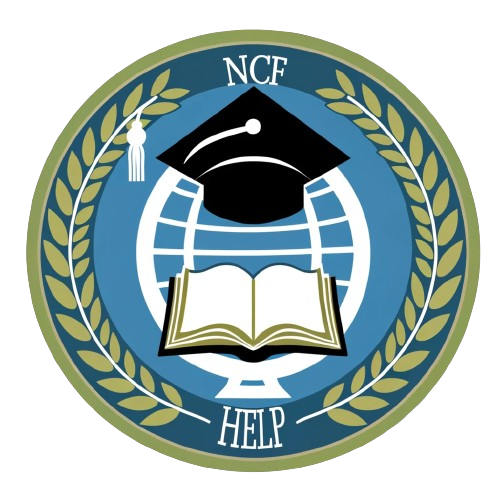The National Education Policy (NEP) seeks to deeply root India’s educational system in its own culture, aiming to foster a more equitable and prosperous knowledge society. The policy sets ambitious goals to provide high-quality education to all citizens, with the vision of propelling India to become a global knowledge superpower.
Implementing NEP 2020 Through the National Curriculum Framework
The National Curriculum Framework (NCF) for K-12 Education is pivotal for the successful implementation of the NEP 2020. It is designed to empower and enable exceptional teaching and learning experiences across the country, transforming the NEP’s vision into reality within our schools and classrooms.
Addressing Educational Challenges and Universal Access
The NCF focuses on critical issues such as reducing dropout rates and ensuring universal access to education at all levels. It prioritizes foundational skills like reading, writing, and basic mathematics, which are crucial for lifelong learning and future academic achievements.
Inclusive Education for Diverse Backgrounds
Efforts are being made to cater to students from various backgrounds, including Socio-Economically Disadvantaged Groups (SEDGs). The curriculum aims to offer diverse learning pathways, integrating both formal and non-formal education methods. This includes Open and Distance Learning (ODL) programs provided by institutions such as the National Institute of Open Schooling (NIOS).
Fostering Cognitive and Character Development
The educational framework stresses the importance of cognitive growth along with character development. It aims to nurture well-rounded individuals equipped with essential 21st-century skills. The curriculum identifies distinct skill sets and values for integration across all levels of education, from early childhood through to higher education.

“Education is the most powerful weapon which you can use to change the world.” — Dr. A. P. J. Abdul Kalam
Emphasis on Critical Thinking and Holistic Learning
The curriculum will focus on core subject essentials, promoting critical thinking and holistic learning through methods like inquiry and analysis. Practical applications and problem-solving skills will be highlighted, alongside experiential learning methods such as hands-on activities, arts integration, and storytelling.
Flexibility and Multilingualism in Education
Students will enjoy greater flexibility in choosing subjects, particularly in secondary education, with options including physical education, arts, and vocational skills. The promotion of multilingualism will encourage students to study three languages based on regional preferences.
Aligning Teacher Education with Curriculum Goals
The NCF 2023 seeks to align school curricula with Teacher Education curricula, supporting the transformative goals of the NEP 2020. This alignment will enhance teacher preparation, promote ongoing professional development, and foster a positive work environment.
Collaboration and Continuous Improvement
Through nationwide collaboration among educators, students, parents, and communities, education practices will be enhanced with practical examples and up-to-date research. This collaborative approach is essential for systematic improvements and meaningful progress in education.
A Holistic Approach to Education
The National Education Policy 2020 embodies the philosophy, while the National Curriculum Framework provides the pathway. This paradigm shift emphasizes holistic child development, skill-building, the pivotal role of educators, learning in native languages, and cultural integration. By aligning with NEP 2020, India’s education model is set to become a benchmark for other emerging economies globally.
Suggested Reading
Official Sources:
- National Education Policy 2020 (NEP 2020): The foundational document outlining the vision, goals, and strategies for transforming India’s education system.
- National Curriculum Framework for School Education (NCF-SE 2023): Keep an eye out for the official release of the NCF-SE 2023 document, which will provide detailed guidance on curriculum design, pedagogical approaches, and assessment strategies aligned with the NEP 2020.
- Ministry of Education, Government of India: The official website of the Ministry of Education provides updates on NEP implementation, initiatives, and resources.
- National Council of Educational Research and Training (NCERT): NCERT plays a crucial role in developing curriculum and educational materials aligned with the NEP and NCF guidelines.
- National Institute of Open Schooling (NIOS): Learn more about NIOS and its role in providing open and distance learning opportunities.
Other Articles:
- Banerjee, N., Das, A., & Ghosh, S. (2021). National Education Policy (2020): A critical analysis. Towards Excellence, 13(3), 406-420. Offers a critical analysis of the NEP 2020 and its potential implications.
- Krishna Kumar, K. (2004). What is worth teaching. Explores the purpose and value of education in the Indian context.
- Singh, R. K., Rathi, J., Gupta, S., Saini, A. K., & Qadri, A. K. (2023). A Study on Social Equity in the Education System: Exploratory Study in the Indian Education System Context. Integrated Journal for Research in Arts and Humanities, 3(4), 169-174. Discusses issues of equity and access in the Indian education system.


Comments
6 responses to “Unveiling NCF 2023 in Harmony with NEP 2020”
Nicely captured the salient points Mr Bisht !
NCF 2023 is a great vision and a lot depends on innovation in the way curriculum is delivered . From flexible seating to assessment on the go and collaboration is the key
Thank you for your kind words! I agree, the success of NCF 2023 indeed depends on the curriculum delivery methods including updated assessment methods. Collaboration is essential to adapt with changing guidelines. It’s an exciting time for educational transformation!
Beautifully analysed and wonderfully articulated. I would like to err on the side of caution and call upon all the stakeholders, governments, managements, school leadership, teacher and parents to commit resources, time and effort to develop the classroom teacher , who would take the NEP and NCF to the end user. Any compromise on training, development and career progression of a teacher will nullify all the initiatives
Thank you for your insightful comment! I wholeheartedly agree. Committing resources, time, and effort to develop classroom teachers is crucial for successfully implementing the NEP and NCF. Ensuring proper training, development, and career progression for teachers is essential for the success of these initiatives.
This is indeed a useful summary of NEP/ NCF 2023, highlighting their key features. All stakeholders in education will need to be trained and prepared to take on this massive educational transformation for this to be possible and successful.
Thank you!